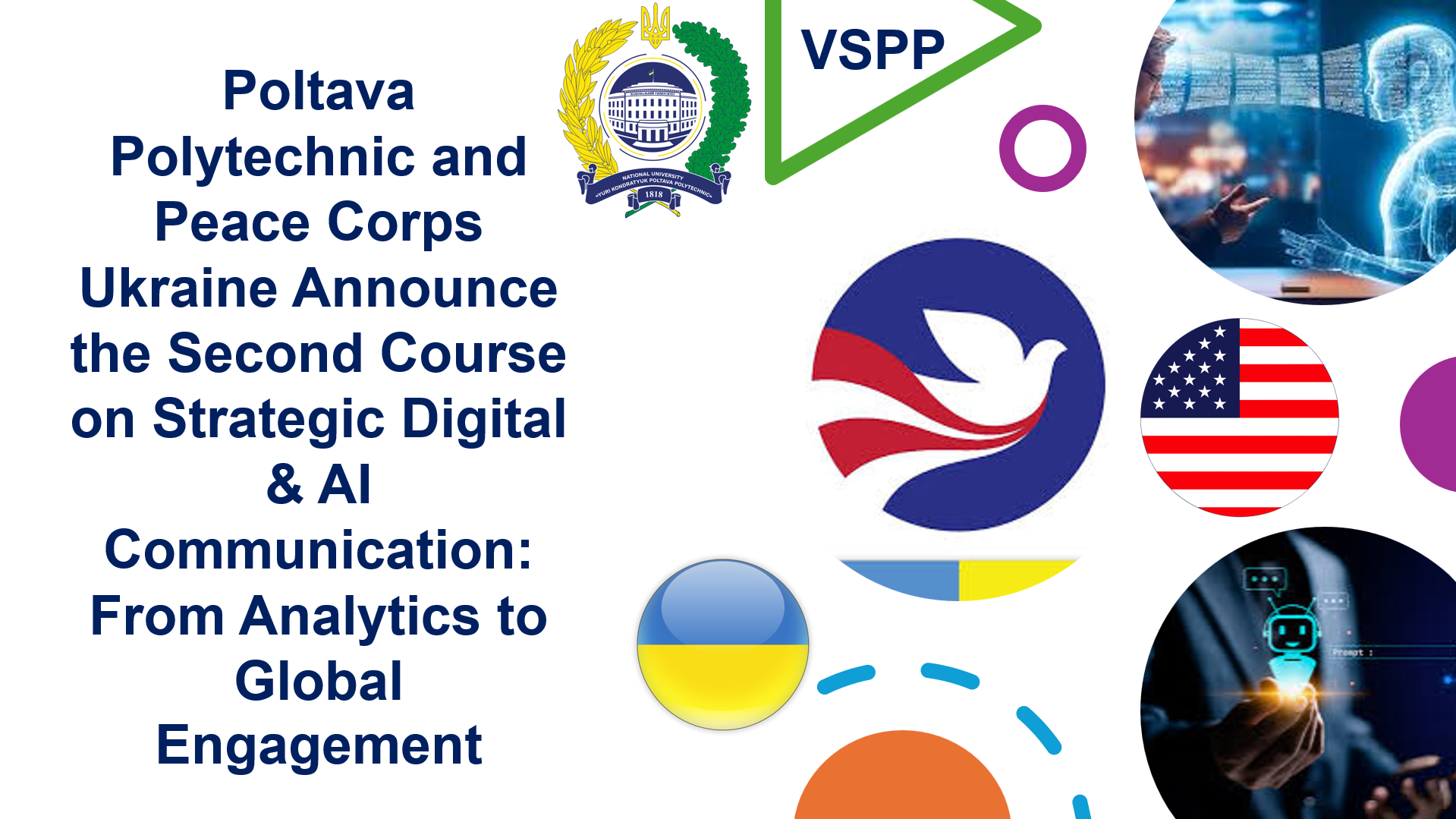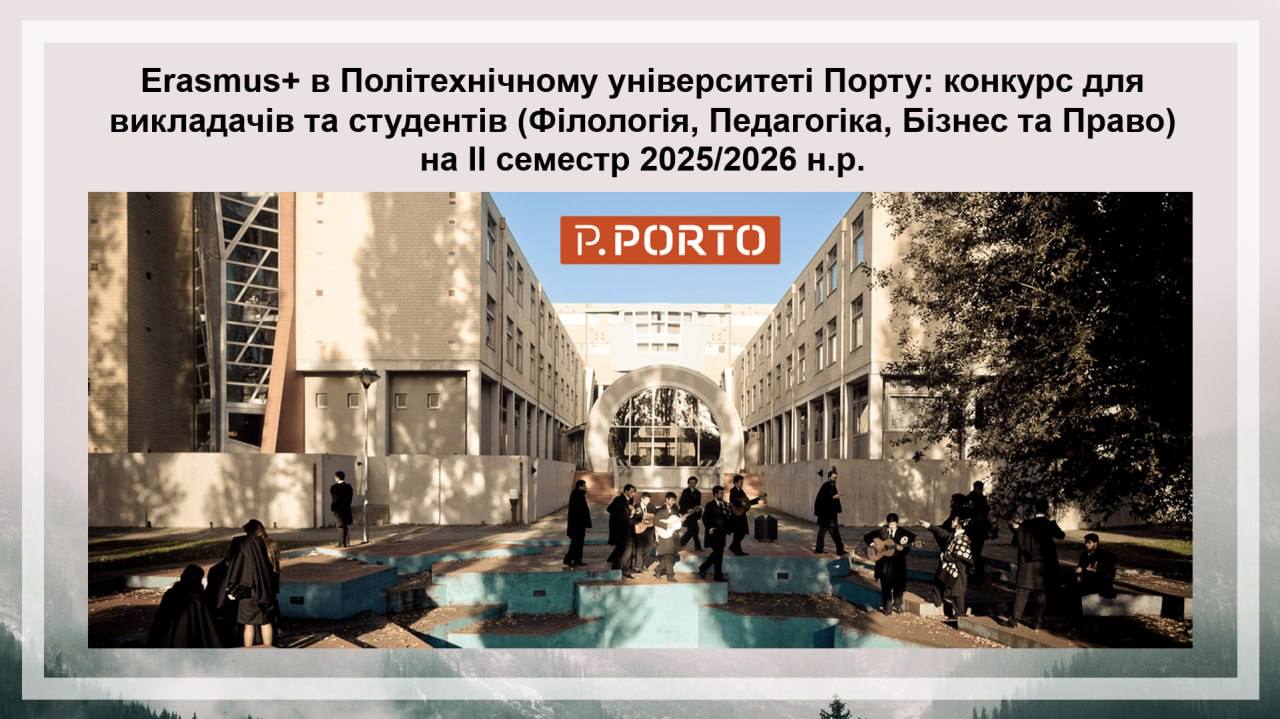On May 28, 2025, a profound art therapy session took place in the cosy space of the dormitory of the Separate Structural Subdivision “Poltava Oil and Gas Professional College” of the National University “Yuri Kondratyuk Poltava Polytechnic”. The participants of the event were internally displaced persons (IDPs) aged 18 and older, and the central theme that deeply resonated with them was “Transformation of Resentment”. This session was particularly relevant given the psychological pressure and multi-level losses experienced by people forced to flee their homes due to military actions.
Lesia Klevaka, PhD in Pedagogy, Associate Professor, and Acting Head of Department, moderated the event.
In psychology, resentment is viewed as a complex mix of emotions, often including anger, frustration, pain, and sadness, that arise in response to perceived violations of personal expectations, boundaries, values, or injustice. If this emotion remains unprocessed, it can become a destructive force, leading to chronic stress, somatic symptoms, a sense of isolation, and hindering personal growth and the ability to form new, healthy relationships. For IDPs, resentment is often intensified by profound losses, unpredictable changes, and a strong sense of injustice directly related to forced displacement and war.
During the session, participants had the opportunity to explore the deep-seated feelings of resentment toward themselves, others, and uncontrollable events that had changed their lives. The core idea of the event was that, despite its destructive potential, resentment is an essential emotional signal. This signal can become a trustworthy resource for personal growth – a kind of “compass” pointing to the need to reassess life values, restore inner balance, and build new, more adaptive behavioural patterns. Through awareness, acceptance, and symbolic expression – the key mechanisms of art therapy – resentment was gradually transformed into understanding, valuable experience, and readiness for change. Art therapy served as a safe and non-verbal space for this complex transformational process, allowing participants to bypass verbal barriers and psychological defence mechanisms that often block the expression of painful emotions.
Particular attention was devoted to the topic of animal-assisted therapy during the event, which is a decisive healing factor. Interaction with animals provides unconditional acceptance and emotional support, which is critically important for people who have experienced trauma and may feel distrustful or isolated. It has been proven that communication with animals reduces cortisol levels (the stress hormone) and increases oxytocin levels (the hormone of trust and attachment). Pets help distract from negative thoughts and provide a sense of routine and stability, serving as an “emotional anchor” in an unpredictable world. Participants sincerely shared stories of how interacting with their pets helped them overcome anxiety, loneliness, and even emotional trauma experienced in the early months of the war, highlighting the profound psychological impact animals have on human well-being.
The practical part of the session also included work with metaphorical associative cards (MAC). As a projective tool, MACs help bypass conscious resistance and access unconscious thoughts, feelings, and resources. The cards enabled participants to view their emotions and life situations from a new perspective, promoting cognitive flexibility and encouraging them to reevaluate problems. Through metaphors, participants discovered hidden inner resources, sources of strength, and new coping strategies for recovery, which gave them a sense of greater control over their lives.
At the end of the session, participants enjoyed a warm and relaxed atmosphere, with the opportunity to converse informally over tea and sweets. Such casual interaction and sincere conversations became an essential part of psychological relief. Creating an atmosphere of trust and acceptance helps reduce anxiety and enables participants to feel safe. When people share their stories and receive support, they realise their emotions are normal and acceptable, significantly decreasing feelings of isolation and shame. The opportunity to express oneself freely in a supportive environment promotes emotional release and catharsis, which are essential for the healing process after traumatic experiences.
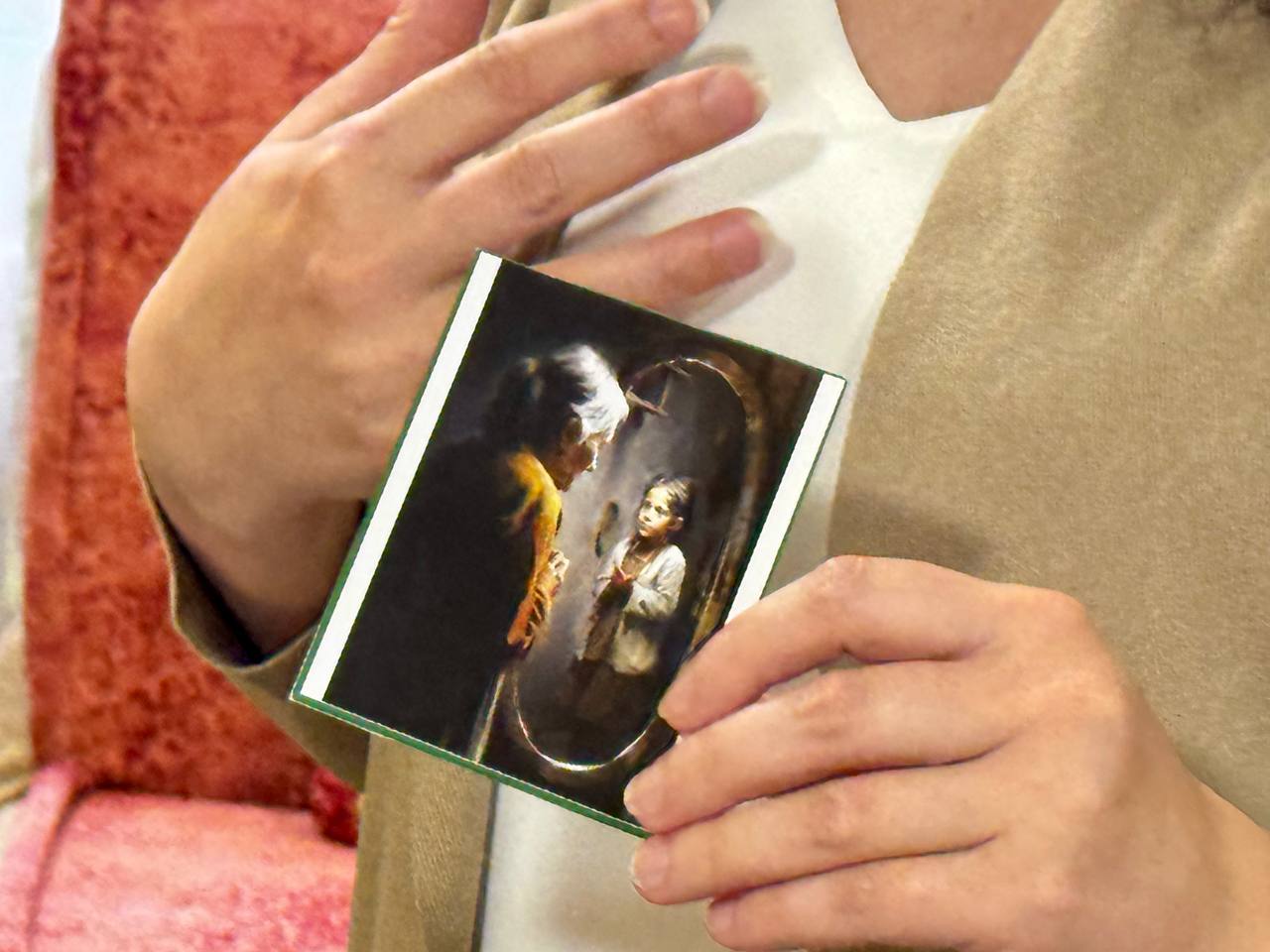
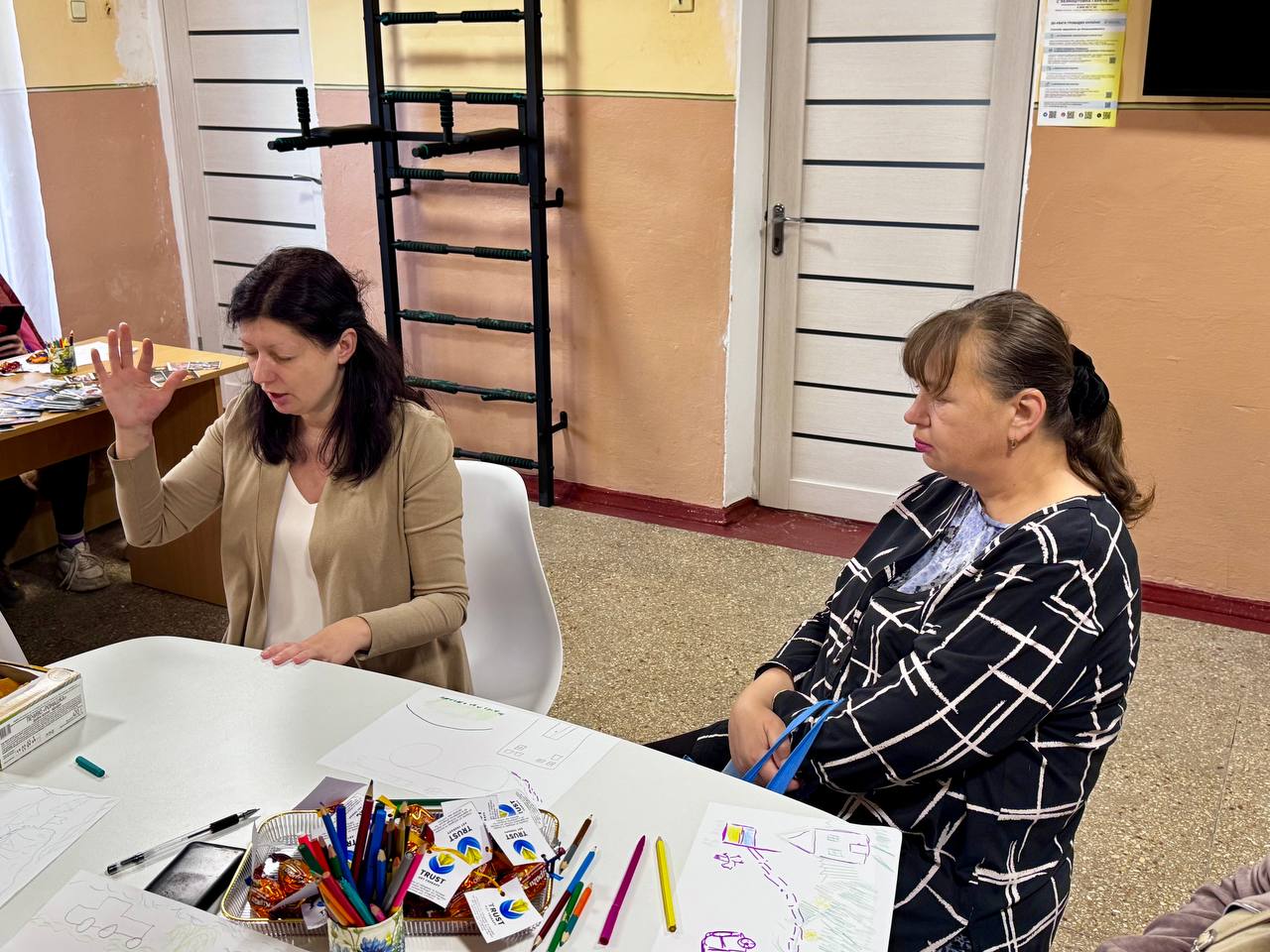
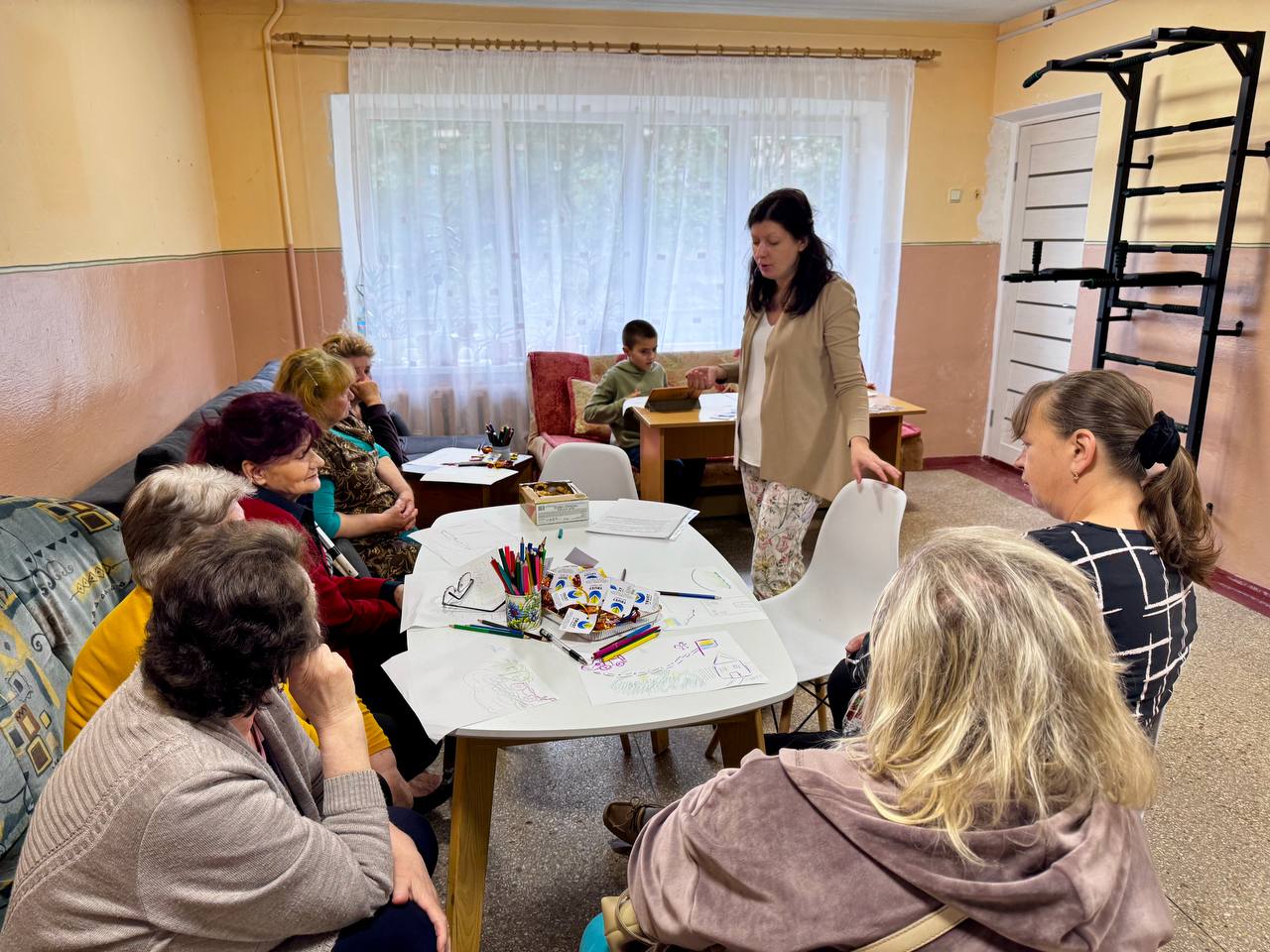
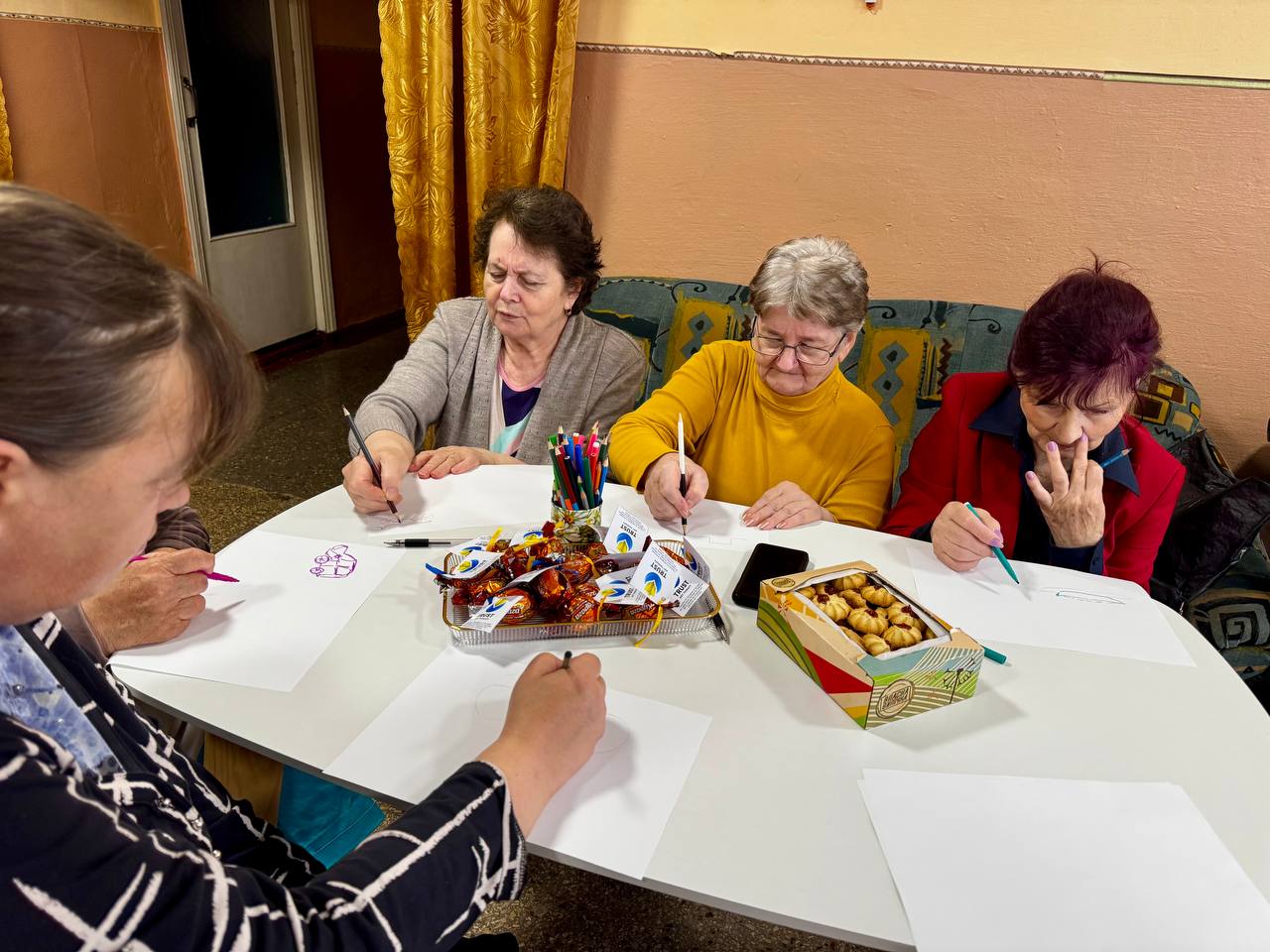
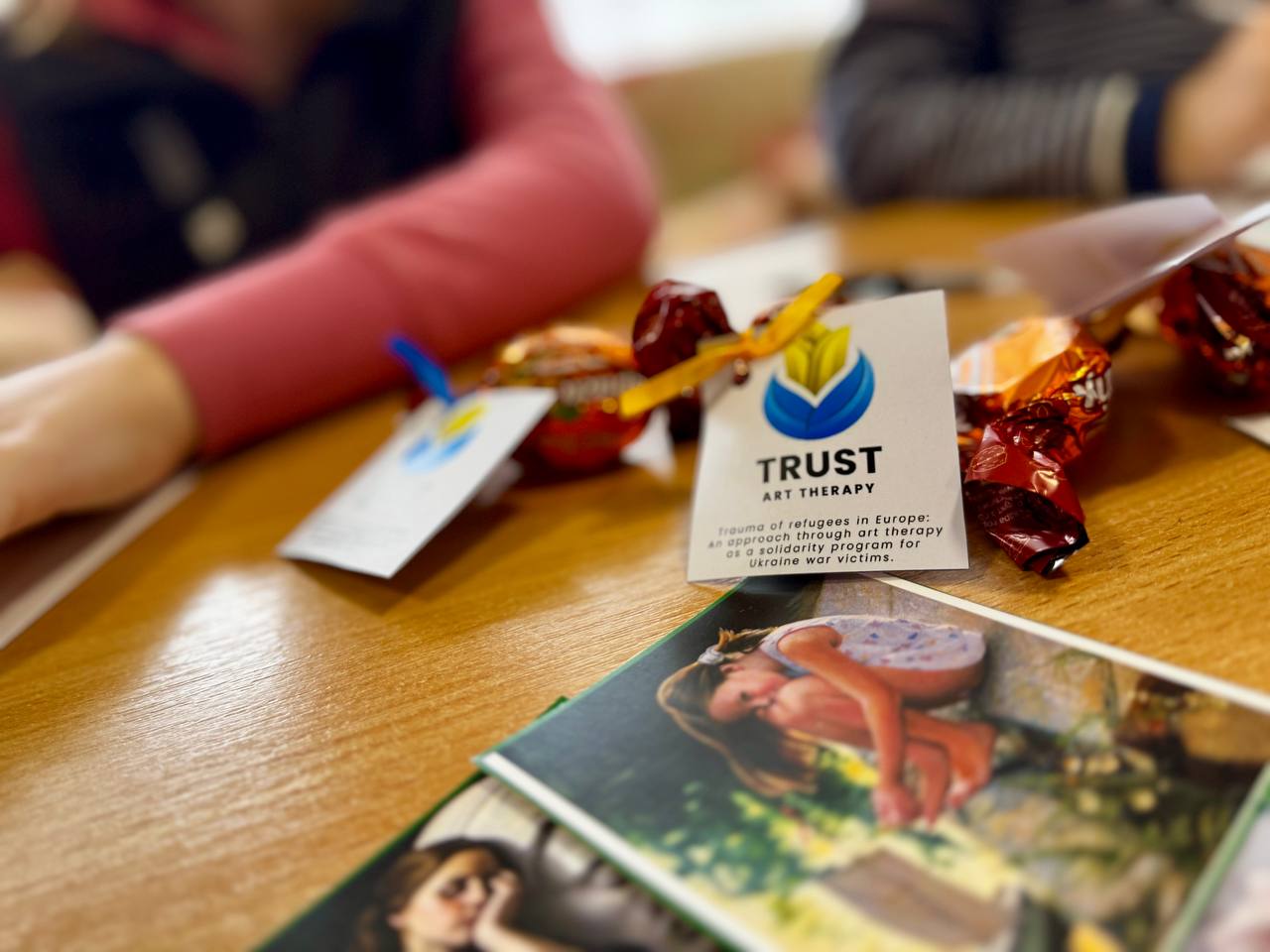
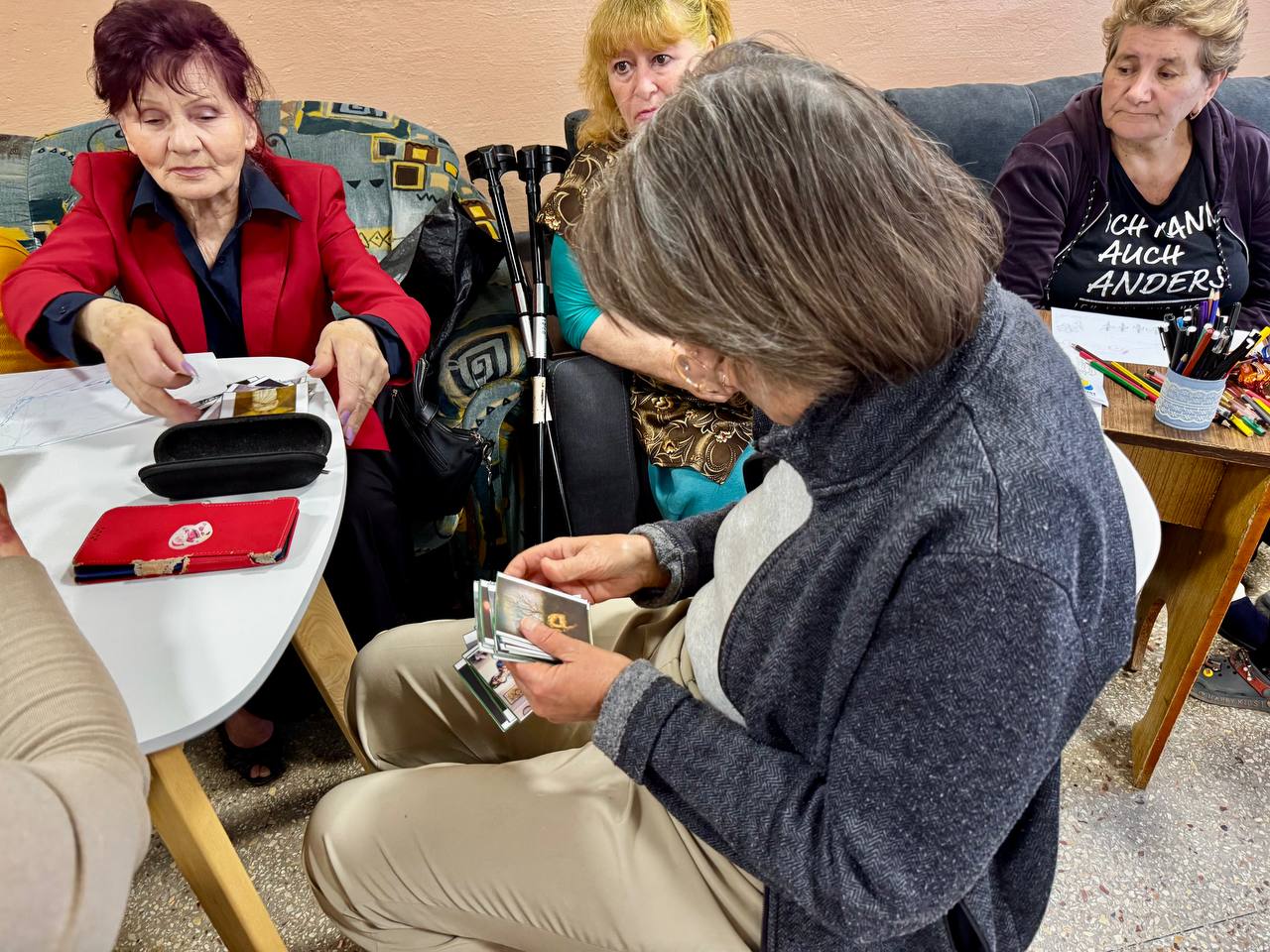
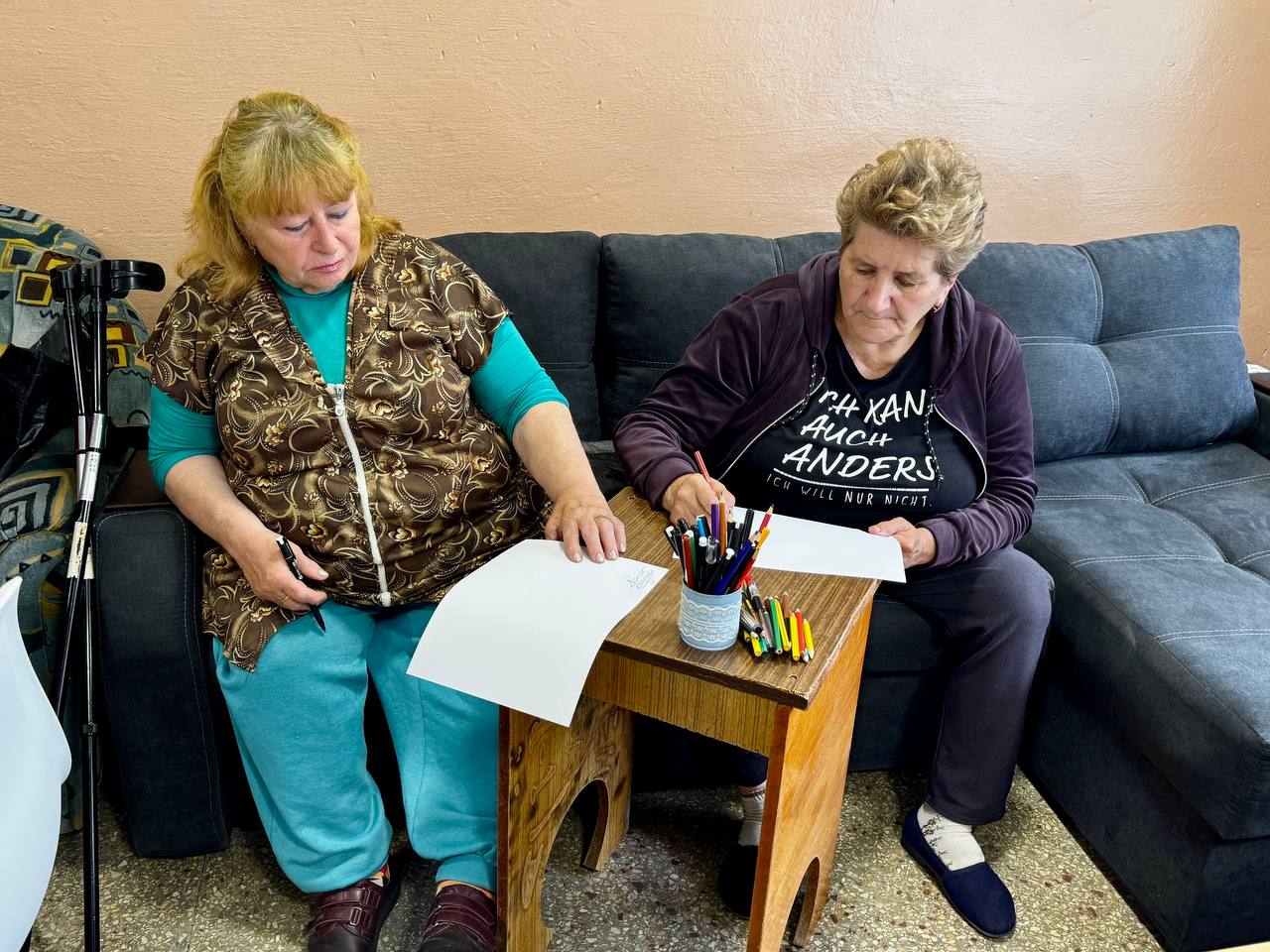
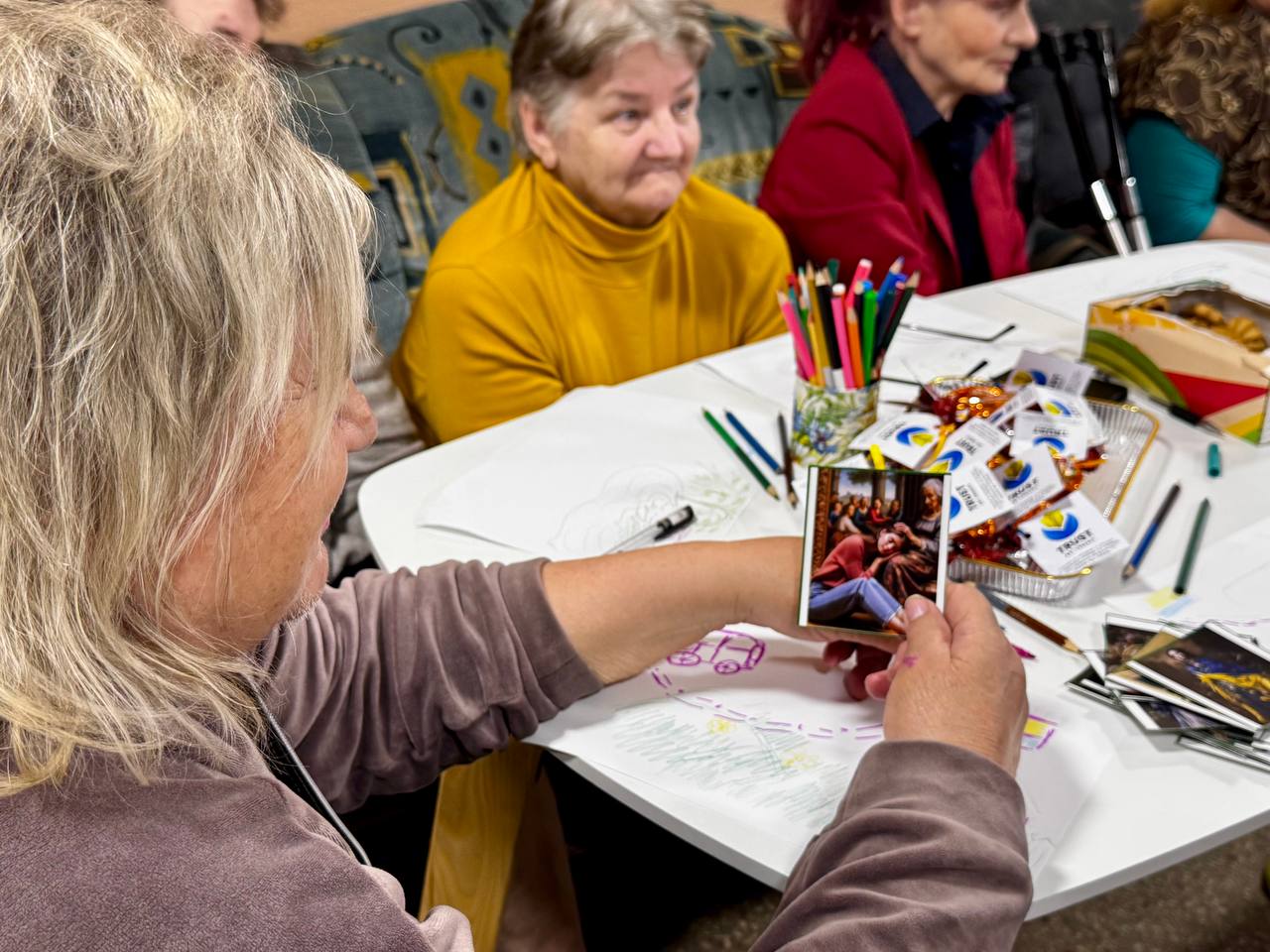
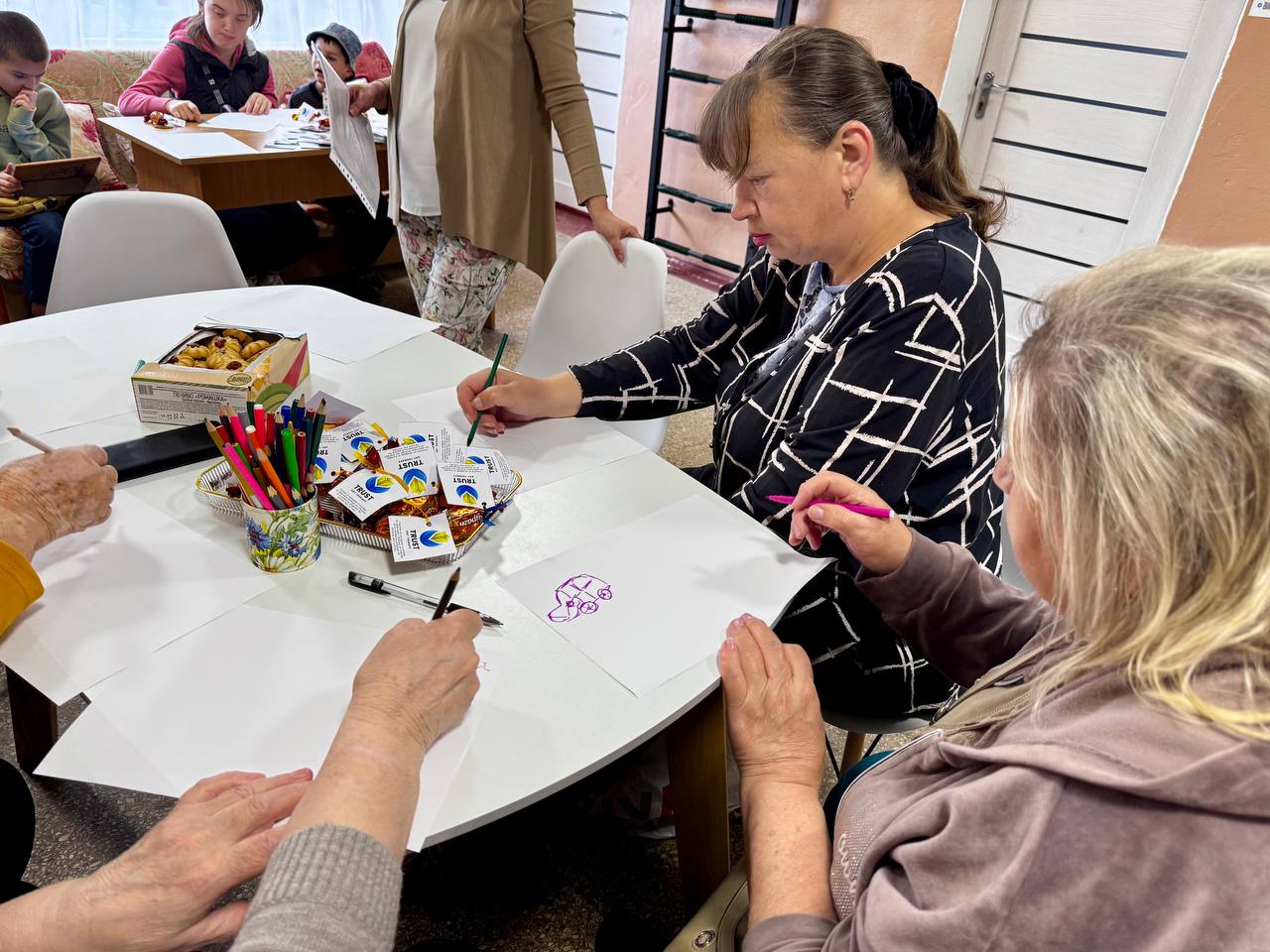
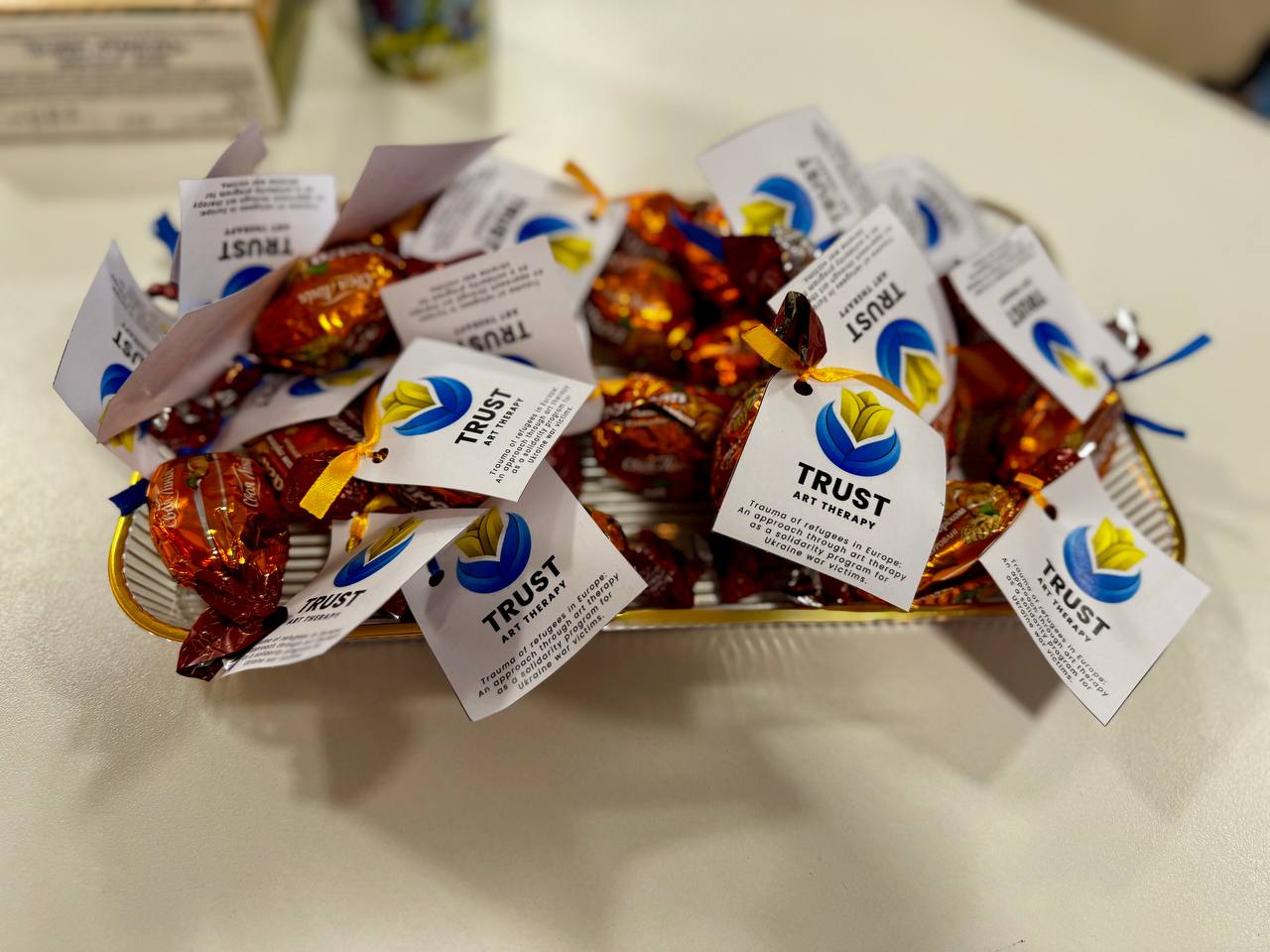
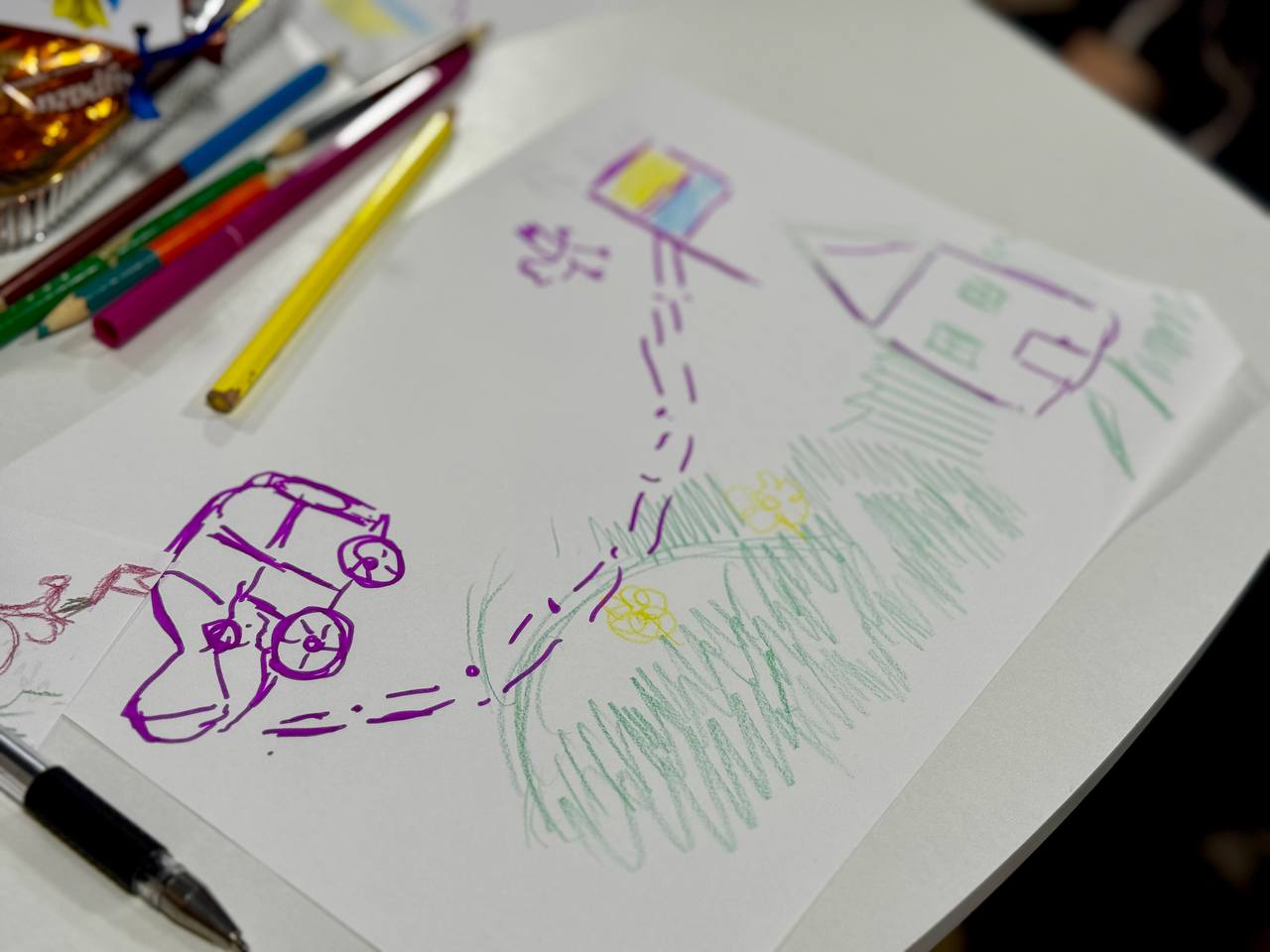
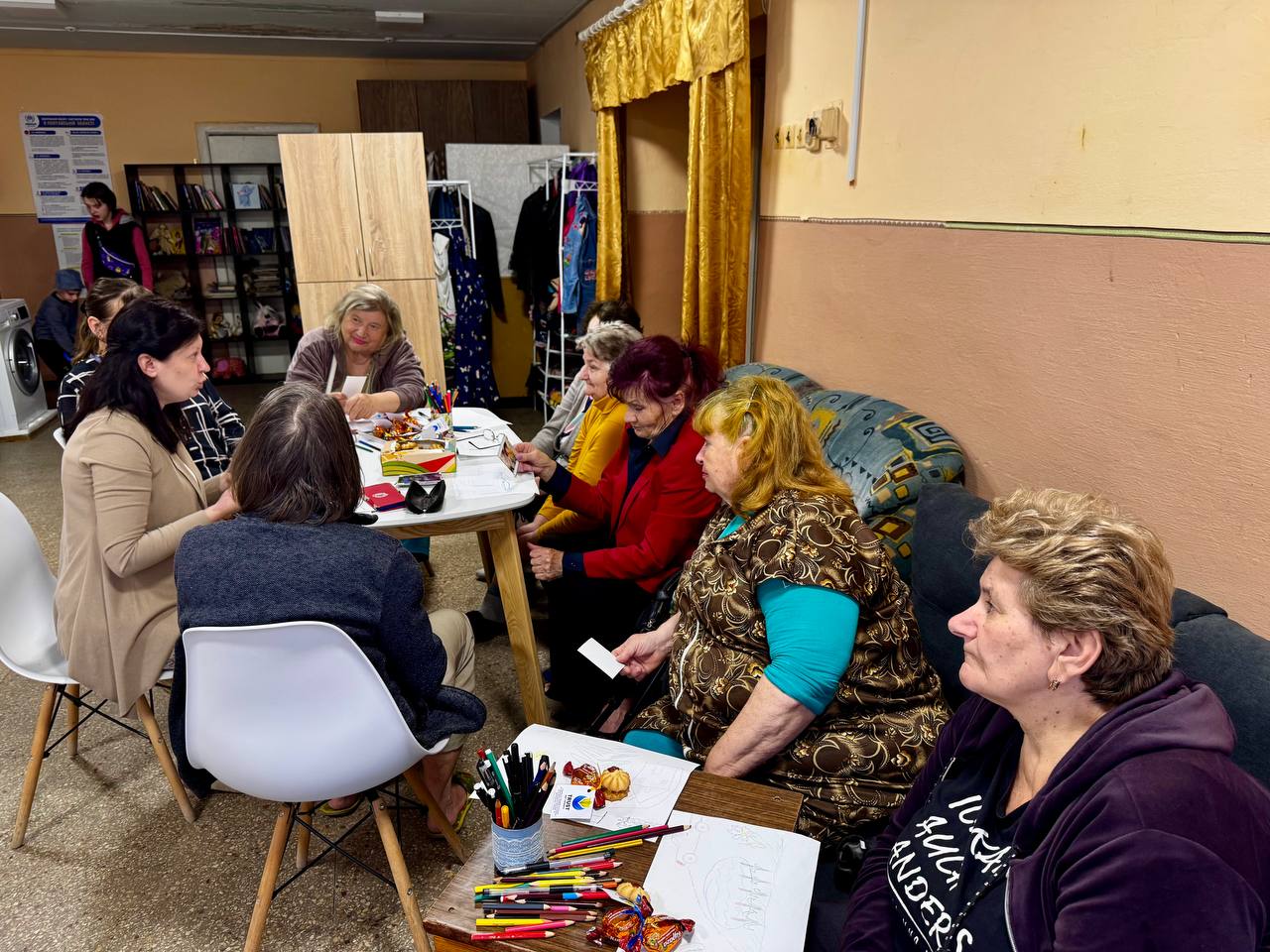
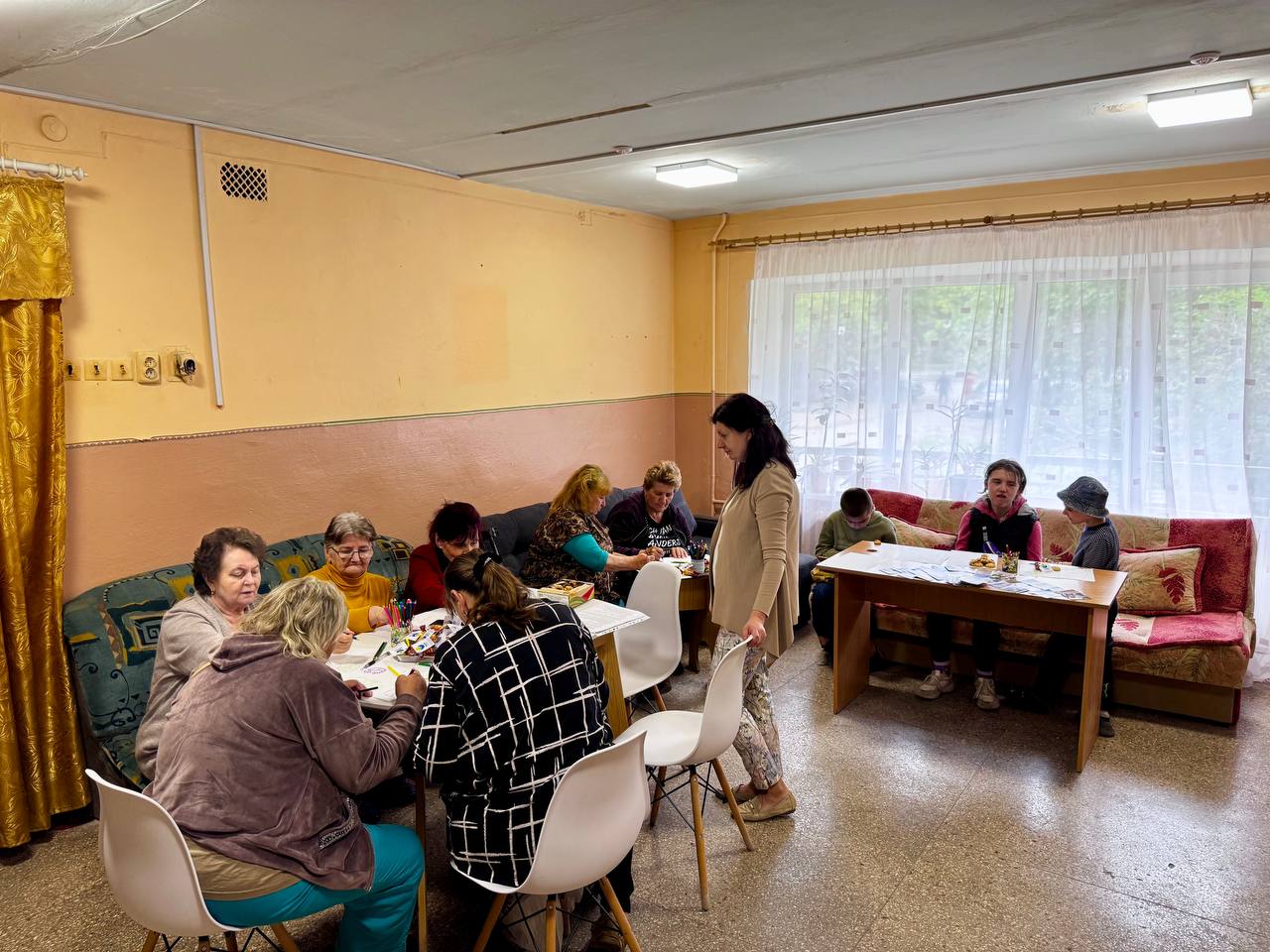
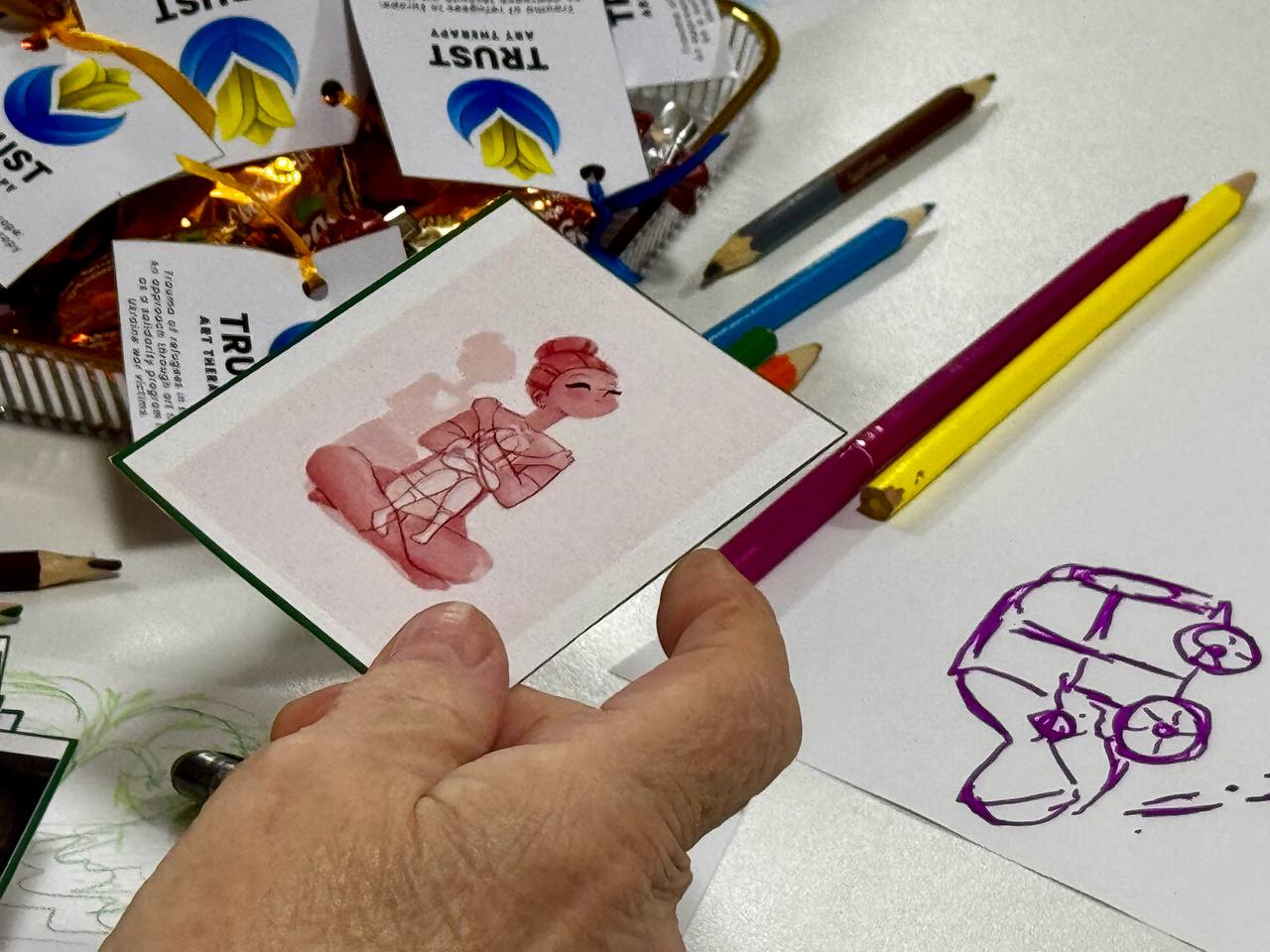
As a result of the art therapy session, participants experienced a significant reduction in emotional tension. They developed a new, more constructive attitude toward resentment, allowing them to perceive it as a potential catalyst for change. There was an increased sense of control over their emotions and a stronger internal foundation, which is critically important for individuals who have experienced trauma and forced displacement. The development of emotional intelligence and imagination enabled participants to understand their emotions better and regulate them more effectively, and to seek creative solutions to challenging life situations.
This session marked another meaningful step in the implementation of the Erasmus+ KA220-ADU TRUST project – Trauma of refugees in Europe: An approach through art therapy as a solidarity program for Ukraine war victims (Grant No. 2024-BE01-KA220-ADU-000257527). The project is co-funded by the EU and led by the Centre Neuro Psychiatrique St-Martin from Belgium, in partnership with the National University «Yuri Kondratyuk Poltava Polytechnic» (Ukraine), Greek Carers Network EPIONI (Greece), Fondazione Don Luigi Di Liegro (Italy), Lekama Foundation (Luxembourg), EuroPlural Project (Portugal).
Additionally, Poltava Polytechnic is currently conducting a series of art therapy sessions as part of the TRUST project. These sessions have included symbolic activities such as designing personal coats of arms to represent inner values, sources of strength and hope; associative drawing exercises; the “Relationships” activity aimed at reflecting on personal connections with loved ones, community, and country; discussions around “What does mental health mean to me?”; neurographic drawing; and immersion in body-oriented therapy where movement, dance, and physical expression become key tools for emotional release and recovery.
Media Centre of
National University “Yuri Kondratyuk Poltava Polytechnic”

